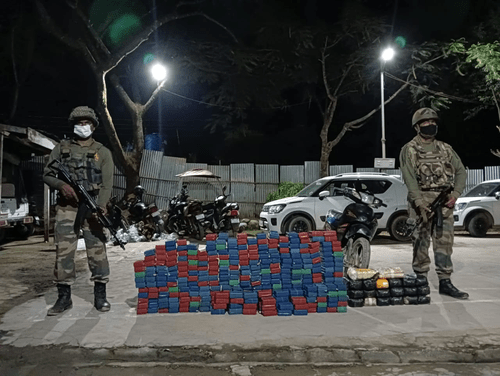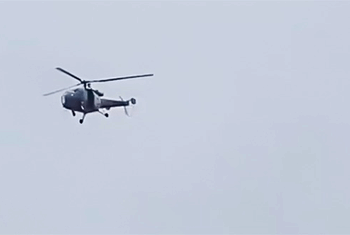Washington/New Delhi, Nov 28 — India and the United States’ expanding counter-narcotics cooperation is emerging as a powerful example of how shared vulnerabilities can evolve into long-term strategic partnerships. A recent report highlighted that this collaboration is not only disrupting transnational drug networks but also safeguarding public health and bolstering economic resilience in both nations.
According to the report, the elevation of the India–US Counternarcotics Working Group to annual engagements has significantly intensified joint efforts. Now preparing for its sixth meeting, the mechanism has contributed to several major drug seizures, arrests, and the dismantling of international trafficking networks. It has also laid the foundation for enhanced regulation of precursor chemicals and broader harm reduction strategies.
The report, published by India Narrative, noted that India’s decision to deepen anti-narcotics collaboration with the US marks a strategic shift in its foreign policy, acknowledging that global drug trafficking networks pose direct threats to national security, public health, and socio-economic stability. The two nations’ operational cooperation has grown rapidly in recent years, leading to the disruption of major transnational drug operations and the creation of strong institutional frameworks.
Since the establishment of the Counternarcotics Working Group in 2020, bilateral engagement has expanded beyond traditional enforcement. Annual meetings, increased information sharing, and widening agenda priorities reflect a shared willingness to develop a comprehensive, forward-looking drug policy model that addresses supply chains, regulatory integrity, public health responses, and social consequences.
The fifth meeting of the Working Group, held in October 2024 in New Delhi, resulted in key agreements to intensify collaboration against synthetic drugs such as fentanyl and amphetamine-type stimulants. With India being a major global producer and exporter of pharmaceuticals, tighter control over precursor chemicals and supply-chain monitoring has become a critical area of cooperation. The global rise of synthetic opioids has further underscored the importance of these measures.
At a weekly media briefing on Wednesday, MEA spokesperson Randhir Jaiswal reaffirmed the strength of the bilateral cooperation. “We have a very strong mechanism of sharing information between the United States and India, and these have resulted in key seizures and arrests. Joint operations have led to the dismantling of major transnational networks. It is a very good area of cooperation and we want to further strengthen our joint fight against narcotics,” he said.
The report emphasised that as synthetic opioids like fentanyl continue to spread worldwide, sustained joint intelligence sharing, capacity-building initiatives, and coherent policy frameworks will be essential for protecting millions from addiction. It added that this mutual commitment could serve as a global model, contributing to safer communities, resilient pharmaceutical sectors, and a stronger multilateral response to modern drug threats.


















